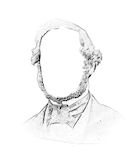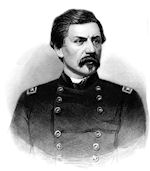—Gen. McClellan, in a despatch to an officer of the Navy in Cincinnati, states that the interview which Gen. Buckner has reported was strictly private and personal; that it was repeatedly solicited, and that he gave no pledge whatever on the part of the authorities at Washington that United States troops should not enter Kentucky. The only result of the interview as he understood it, was, that Confederate troops should be confined to Confederate soil, so far as Kentucky was concerned. —N. Y. Evening Post, June 27.
—The address of the Sanitary Commission to the citizens of the United States was published.—(Doc. 44.)
—A flag was raised upon the flagstaff on North Hill, Needham, Mass. It was run up by Newell Smith, Esq., one of the oldest inhabitants of the town, and saluted by the firing of cannon on a neighboring hill, the “Star Spangled Banner” by Flagg’s Band, and the cheers of the spectators. A public meeting was organized, and addresses were made by Rev. Messrs. Green, Atwood, and Emerson, all of Needham, and by Major Wright and Solomon Flagg, Esq. An original poem was delivered by Benjamin G. Kimball, Esq., and an ode, written for the occasion, by Hon. E. W. B. Canning, of Stockbridge, was sung by the people to the air of “America.”—Boston Transcript, June 28.
—The First Minnesota Regiment of Infantry, commanded by Colonel Willis A. Gorman, passed through Baltimore on its way to Washington. The full regiment makes an aggregate of 1,046 men all told, but only nine companies were on the march. This is accounted for by the fact that Company A was left at Fort Snelling, and this decreases the command to 910 men. The regiment is accompanied by Capt. Ingalls cornet band, of seventeen performers. They left Fort Snelling on Saturday week, and were ordered to report at Harrisburg on the 20th, but as they reached there on the 25th, after a hurried travel of over 1,800 miles, they concluded to report at Washington. They are a hardy-looking set of men, some of them of enormous size, all of them well disciplined and equipped, and only one sick man on the list. The uniform consists of plain gray cassimere, trimmed with black, and a black felt hat, according to the army regulation.
—Corporal Hayes and twelve men belonging to Col. Wallace’s regiment of Zouaves, while scouting on Patterson’s Creek, twelve miles east of Cumberland, Md., encountered a party of rebels numbering about forty. A sharp engagement ensued. Seventeen of the enemy were killed, and a number wounded. One of Hayes’s party was killed, and himself badly wounded.—(Doc. 45.)
—The Sixteenth Regiment N. Y. S. V. passed through New York en route to the seat of war. Before leaving the city the regiment was presented with a regimental flag by the wife of G. Howland. The dress of the soldiers is of the United States army pattern, and all the officers wear the regulation uniform, with felt hats and plumes. The commander of the regiment, Col. Thomas A. Davies, is a graduate of West Point, and served in the war with Mexico. The men are volunteers from the region of country about Albany, and northward as far as Plattsburgh.—(Doc. 46.)









